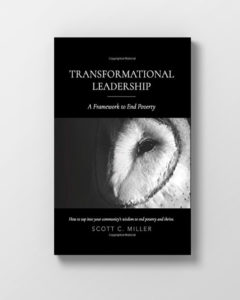The call to adventure to address poverty typically comes in one of these four ways:
-
- Provide private, limited charity to deserving, needy people as prescribed by my faith.
- Mentor someone poor who wants to learn how to not be poor anymore.
- Directly hire the poor.
- Support any policy that would eliminate subsidies that ultimately enable the poor to stay poor.
What’s wrong with solution No. 2: Mentoring the poor?
The problem with the second solution, mentoring the poor, is that it begins with the assumption that people with middle-income and upper-income means and backgrounds know enough about the experience of poverty to tell people in poverty how to effectively address the challenges of being poor in our nation. Nothing could be further from the truth.
People in poverty must inform all the decisions that go into making their own personal plan, as well as the development of community and government programs that are designed to “support the poor.” Without the wisdom of such a partnership, middle-income and upper-income folks fail with spectacular consistency as evidenced by an unchanged poverty rate for decades and decades of well-intentioned government and charity efforts. The result of these failures, unfortunately, is often to simply blame the poor:
“We have great anti-poverty programs; we just need better poor people.”
The first person I ever tried to help out of poverty resisted my first 38 great ideas to fix her. The more enthusiastic I was to find a way to fix her, the less willing she was to invest her time in interacting with me. I wanted her to take my advice and get out of poverty. Our relationship ended immediately and for good reasons. I had a low poverty IQ, unrealistic expectations, no support system to determine how best to be of assistance, and a worldview that she definitely did not share. Life did not look like endless opportunities for the taking to her. It looked hostile, disappointing, and dangerous. Her everyday challenge was one of survival. Mine was a search for more meaning through making a difference to another. I was willing, just sadly uninformed.
Follow-up posts will walk through common responses to poverty 3 and 4…stay tuned for more.
Learn more: Transformational Leadership: A Framework to End Poverty ~ By Scott C. Miller
To learn more about Scott Miller, please see his website here.

